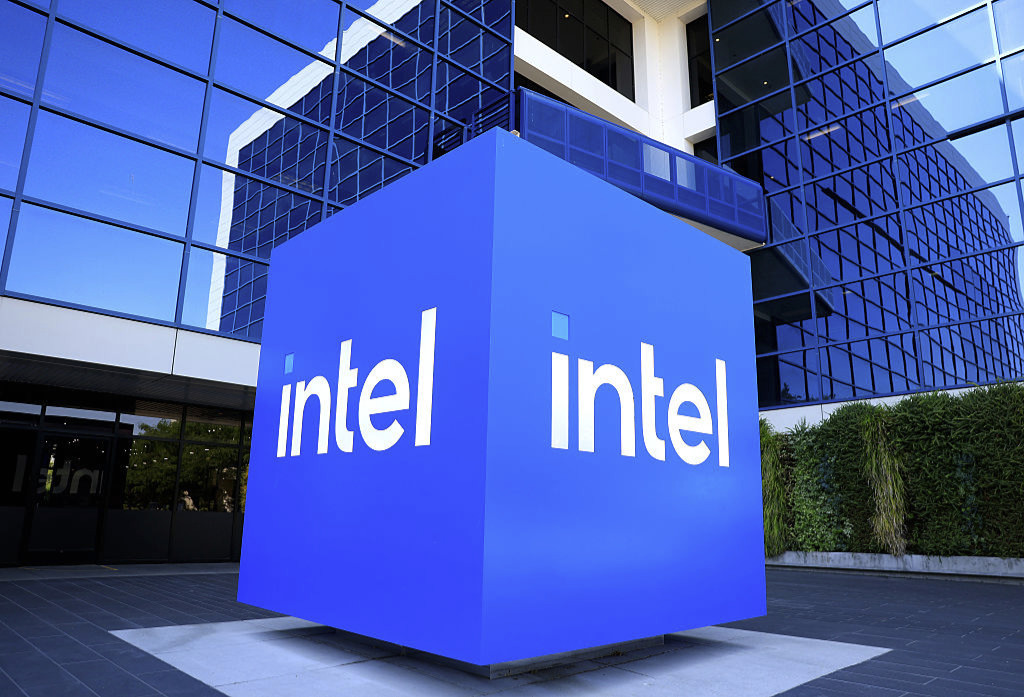
President Donald Trump and members of his cabinet met Lip-Bu Tan, CEO of Intel, on August 11.
"The meeting was a very interesting one," Trump posted on Truth Social immediately afterwards. "His success and rise is an amazing story. Mr. Tan and my Cabinet members are going to spend time together, and bring suggestions to me during the next week."
Here is a suggestion: Instruct the Justice Department to open a criminal investigation into Tan. It is time to establish accountability in corporate America when it comes to the People's Republic of China.
First, the good news.
Tan can save the ailing American chipmaker.
He has the right vision for Intel, is extremely capable, and has the strength to take on the chairman of the company's board of directors, who wants to implement a misguided restructuring.
Tan is one of the most effective American executives anywhere. The markets know this: Intel's stock rose more than 13% the day the company announced he had been named the CEO, in March.
Tan has many other achievements. His U.S.-based venture-capital firm, Walden International, was formed in 1987 and has made over 500 investments, including those in more than 120 semiconductor firms. Tan also successfully turned around Cadence Design Systems, a San Jose, California-based firm designing hardware and software for chip-making.
Tan has the right vision for Intel. In recent months, he has been slugging it out with Frank Yeary, chairman of the board, who wants Intel to unload its manufacturing business.
Yeary has been working to sell Intel's foundry division to Taiwan's TSMC or spin it off. He also explored selling stakes to Nvidia and Amazon. Tan, on the other hand, wants Intel to stay in manufacturing to keep the United States in the game.
Tan is right. Intel does not need wizard financial types — Yeary is a former investment banker — auctioning off America in pieces to foreign bidders.
So, what is the problem with Tan staying at Intel?
Tan has a China problem he cannot shake. "The CEO of INTEL is highly CONFLICTED and must resign, immediately," Trump posted on Truth Social on August 7. "There is no other solution to this problem."
Trump was absolutely right.
Walden International invested in Chinese military tech companies and those implicated in Beijing's human rights violations, including Intellifusion, a Chinese AI business that is sanctioned for enabling surveillance in China's Xinjiang Uygur Autonomous Region.
Walden was also an investor in Semiconductor Manufacturing International Corp., SMIC, now China's largest chipmaker, and Tan served on its board until 2018. In China, he is known as "Mr. Chip" because he was largely responsible for developing that country's semiconductor industry. Walden, as the Wall Street Journal noted, invested in "some of the biggest names in China's chip industry" and "smaller companies that filled essential niche roles."
Tan's involvement in China and Walden's Chinese investments were not controversial at the time, but, given China's overt hostility to America, they were obviously ill-advised.
Tan could sell all his interests in China and remove the conflict that Trump mentioned, but the president was still right to say Tan must leave Intel.
Tan was CEO of Cadence Design Systems from 2008 to 2021. From 2015 to 2021, Cadence made 56 sales of semiconductor design tools, software, and other tech products to China's National University of Defense Technology, which, among other things, conducted simulations of nuclear explosions.
The sales were illegal under U.S. law — the university was added to the Commerce Department's Entity List in 2015 — and Cadence in late July pled guilty to one count of conspiracy to commit export control violations. Additionally, the company agreed to pay a fine of more than $140 million.
Tan failed to respond to a Reuters request for a comment on the Cadence guilty plea and fine, but he did respond to Trump's demand that he leave Intel. In a statement issued hours after the president's posting, Tan said he shared Trump's "commitment to advancing U.S. national and economic security" and that he was working with the Trump administration "to address the matters that have been raised and ensure they have the facts."
"I love this country," Tan, a naturalized U.S. citizen, added.
It's great that he loves America, but last decade he put every American life at risk. The Trump administration, therefore, must hold him accountable for transferring advanced technologies to China's military.
Up to now, the U.S. has rarely prosecuted tech executives for exporting advanced technology to China, and when it has prosecuted anyone, the penalties have been only slaps on the wrist. To establish accountability, the Justice Department must investigate Tan's role in Cadence's long series of sales to the Chinese military.
"One cannot but wonder — and we will never really know — just how connected to China's military and how badly compromised Tan really is," Brandon Weichert, senior national security editor of The National Interest, told Gatestone. "But we do know someone operating at his level and who engaged with Chinese military-affiliated businesses cannot be a reliable partner to the U.S."
No matter how much good Tan can do at Intel, that company will be tainted with ties to him. Said Weichert, "So long as Tan remains as CEO of Intel, the U.S. government can never do substantial business with that firm because the risk of compromise is too great."
Gordon G. Chang is the author of Plan Red: China's Project to Destroy America, a Gatestone Institute distinguished senior fellow, and a member of its Advisory Board.


